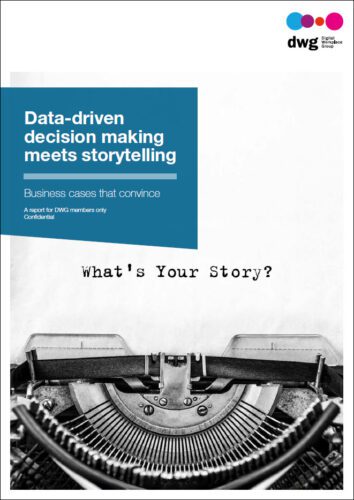Changing behaviour by doing
Professor Karen Pine (@karenpine) started her talk at the Meaning conference by telling a story about a Geography teacher (from the too long ago to get sued 1970s). “Get as far away from this classroom as you can,” says the teacher. So, Karen’s friend hitch-hikes to Ipswich. The teacher had arranged for all of the hitch-hiking pupils to call him and reverse the charges, and when the operator announced the caller’s name and location, the teacher would refuse the call, mark down how far the kid had got and trust them to hitch-hike home again. The desired outcome of the anecdote is that you would learn a lot more about Ipswich by going there, than by being told about it in a classroom.
 Karen contests that this is exactly the opposite of traditional learning in organizations. Training courses, away-day workshops and e-learning take people out of their daily routine, attempt to fill their brains with facts for a few short hours. They are then thrown back into their day job, where they quickly and efficiently forget all of the what was taught to them. Karen, a professor of psychology, explains this is all down to how are brains are wired, as the brain is a habit-machine. “Doing” changes our brains and our habits. Traditional learning does not.
Karen contests that this is exactly the opposite of traditional learning in organizations. Training courses, away-day workshops and e-learning take people out of their daily routine, attempt to fill their brains with facts for a few short hours. They are then thrown back into their day job, where they quickly and efficiently forget all of the what was taught to them. Karen, a professor of psychology, explains this is all down to how are brains are wired, as the brain is a habit-machine. “Doing” changes our brains and our habits. Traditional learning does not.
Karen then shared some case studies from the company she has founded with another academic Professor Ben Fletcher – Do Something Different. The idea is simple. Instead of a traditional learning and development programme, training delegates receive a “Do” that arrives courtesy of their smartphone. They then have a day to, ahem, do-the-do. One of the case studies was about a thrusting dominating senior manager in charge of a massive reorganization. The “do” asked him to not be assertive in his next meeting. They key is the behaviour being different, rather than rattling along the in the ruts of our everyday selves and participants undergo a detailed questionnaire to find out their preferences and then makes them do the opposite. The thrusting senior manager clasped his hand over his eager mouth and let other people lead the discussion. He found that the guy he thought was at-one with him was a babbling idiot, but he hadn’t previously noticed. Another colleague he thought was a lightweight, when allowed to speak, brought up many important points.
Achieving ‘unconscious competence’
I would contest that the intranet world is a world of attempted behaviour change and we should hold Karen’s teaching to our hearts. Internal Communications departments fill endless news stories with words to try and change how people think and act. Collaboration platforms go under-used because people hold on to email and file shares with a death grip, hoard information and generally try and ignore the 21st century. The benefits of social platforms within the enterprise will only be realized when people break through their programming of “not being a show-off”, “well I didn’t think it was important enough to mention” and “I didn’t want to waste everybody’s time”. Tools like this take a long time to achieve what you can call unconscious competence. I would love to see someone out there take on the “Do Something Different” idea for social and collaboration in the enterprise. A Do comes in and you’ve got a day to complete it:
- “Let your colleagues know what projects you are on this week”
- “Update your status message in a way that would make someone laugh”
- “Thank someone on Yammer who has really made a difference this week”
- “Make three good edits on the wiki”
- “Find three old documents you don’t need any more and delete them”
- “Help someone update their incomplete directory profile”.
But remember Do Something Different’s genius is doing the opposite of your preference. So for people who are at one with the digital world:
- “Instead of instant messaging someone today, pick up the phone”
- “Today use a pen and paper to take notes and make sure that you doodle”
- “Instead of clicking ‘like’ explain in no fewer than 50 words why you like someone’s post”.
Little humane actions that re-programme years of bad habits; and before you know it you just do it and work is a better place. So here’s your first Do in the style of Karen Pine: Stop trying to change behaviour with words other than “be” and “do”.
Read the other posts in this series:
- Part one: Breaking the chain – death to email
- Part two: The intranet of the freelance future
Get details of DWG’s research programme
About the author
Chris Tubb is an intranet and digital workplace consultant and a lead benchmarker for IBF in the Management Benchmarking Areas. He is also an analyst, blogger and research associate across the Digital Workplace Group of businesses and has published research papers on operational intranets and intranet measurement. Chris was formerly responsible for Intranet strategy and architecture at both Orange SA and France Telecom Group, where he gained an intense dislike of business travel. Work interests include governance, strategy, metrics, flexible and co-working, the future of work and the intersection of technology with, um, everything. He occasionally twitters (@christubb).
Categorised in: Digital workplace strategy
